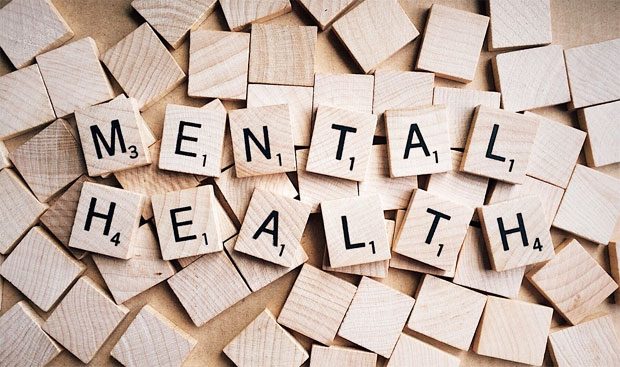What is Obsessive Compulsive Disorder (OCD)? | A Quick Guide

What is Obsessive Compulsive Disorder (OCD)? | A Quick Guide
Obsessive Compulsive Disorder, commonly known as OCD, is a psychiatric disorder. It is a chronic anxiety disorder and it is characterized by obsessive thoughts and compulsive behaviours. It is a neurotic disorder based upon some trauma or experiences early in life. However, most experts agree at this point that Obsessive Compulsive Disorder really is a biological disorder. This is because you can often see Obsessive Compulsive Disorder inherited through your family tree. There are many common behaviours among individuals who are suffering from obsessive compulsive behaviour. These include having obsessive thoughts or repetitive behaviours such as handwashing, excessive cleaning, and number counting.
Obsessive Compulsive Disorder tends to have some component with harm or fear that something’s not going to work out or something bad is going to happen. It can be a variety of different things from ego-driven ideas to achievement-driven ideas. This form of behaviour is created to compensate or to try to protect from that constructed impending danger in the mind.
The person suffering from this disorder usually believe that they have to do all these ritual behaviours. Specifically, if they don’t do these behaviours, something bad is going to happen. Hence, the behaviour happens primarily to calm the obsessive thoughts thus to minimize or reduce the anxiety.

How Does OCD Affect a Person
Obsessive Compulsive Disorder is a disorder that is comprised of obsessions and compulsions. Obsessions are repetitive and specific, negative and fearful thoughts that cause a person anxiety. They are the thoughts, impulses, or images that come into your head. No matter how hard you try to block them out, they still don’t go away. They are always about something upsetting or dangerous. These urges make you feel scared, guilty, or anxious, in case the thought is true.
On the other hand, compulsions refer to the behaviours, actions, and routines performed by the patient with the intent to relieve oneself from the anxiety associated with their unwanted, repetitive and intrusive thoughts. Compulsions can be anything you do in order to prevent the unwanted thoughts from coming true or to take away the fear created by your intrusive thoughts. They can be visible behaviours, such as checking or washing, or they can be things you do in your mind that no-one can see, such as praying, counting, or repeating words silently.
OCD in Children & Adults
Obsessive Compulsive Disorder can occur in both adults and children, with most patient developing their first symptoms before reaching the age of thirty. According to the NIMH, obsessive compulsive disorder affected 1.2% of adults in the U.S. in the past year. It currently affects approximately 1 in 40 adults and 1 in 100 children in the U.S. The obsessions can interfere with the patient’s concentration. It starts with their ability to engage in their usual activities because they have to do their compulsive behaviours and repetitive rituals.
Obsessive Compulsive Disorder is a hereditary disorder that can often link to other problems such as ADHD, Tourette’s and even depression and anxiety. Some of the compulsive behaviours might be the need for symmetry, for example by lining things up just so or in an even fashion. Severe forms of obsessive compulsive disorder can be fairly debilitating, too.

How OCD Behavior Therapy Works?
Obsessive Compulsive Disorder can be lifelong but with treatment, some children can outgrow it. Specifically, the disorder can be treated quite well by a child psychologist Dubai expert. Expert psychologists in Brisbane recommend behavioural therapy as it is very helpful. Also, they recommend suitable medication.
Somebody who would be receiving behavioural therapy or cognitive behavioural therapy for OCD would sit down and list with their clinician the types of symptoms they have. Here, we’re talking about the things that we count as obsessions or do they involve contamination, do they involve aggressive thoughts, do they involve a need for perfectionism or symmetry and then we look at the corresponding compulsions to those particular compulsions where they have to do the cleaning rituals, or they have to do with checking or arranging.
We list all those things and then we try to assign them a value about how disturbing or difficult they are. In order for behaviour therapy to be effective, it has to be fairly intensive under the best of circumstances, we try to do it as an outpatient but multiple times a week and it’s not usually a 50-minute session, but it could be a 90-minute session so it’s not your conventional 50-minute hour where you see the psychiatrist or psychologist. we want the patient to come in and be exposed to something that bothers them that provokes their symptoms and then show that the anxiety associated with that exposure diminishes over time without performing the compulsions.
What to do if you think you might have OCD.
If you believe you suffer from obsessive compulsive disorder, you want to first minimally talk to your family physician but probably making an appointment with a psychiatrist is the best option. If you or someone you know are struggling with obsessive compulsive disorder, feel free to get in touch with an expert on this field, such as Brain Wellness Spa, for professional assistance as they can provide you with the best recovery plan that will help you from this common mental health illness.

How To Support Someone with Obsessive Compulsive Disorder
- Learn Everything About Obsessive Compulsive Disorder
Educating yourself about obsessive compulsive disorder is the first step. This will help you be a good support system for your loved one suffering from this form of mental disorder. You don’t really have to be an expert in this matter. Simply knowing the basic features of this disorder will surely help them in making the recovery process a lot easier. These include things like the signs, symptoms and treatment modalities of OCD.
Equipping yourself with this information will also expand your knowledge and ability to be more understanding with their current situation. Lastly, you will know that their struggles are not that easy to combat. Because of this, you will be able to prepare yourself to be there for them for the entire recovery process.
- Involve Yourself In the Healing Process
Living with someone who is battling obsessive compulsive disorder can be very difficult. Regardless of what it sometimes causes in the family or marital relationship, always try to remember that the day-to-day struggles of the patient are far difficult than any sort of problem you may encounter along the way.
Be more patient and understanding. Let them know that their journey is your journey too. You’re all in this together until you combat the disorder. Always talk to them how they feel and ask them if something unusual bothers them. Working through problems by way of communication is the key to improving their ability to relate with other people. This is such an important part of the treatment.
Guest Article.




